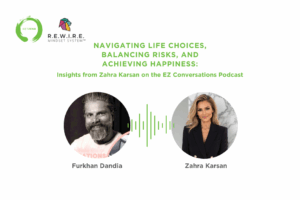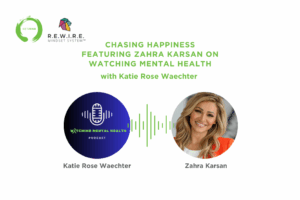In today’s competitive market, companies are realizing the importance of investing in their employees’ well-being.
Corporate wellness programs, designed to support the physical, mental, and emotional health of employees, have proven to be a powerful tool in enhancing workplace performance, morale, and work ethic.
The statistics speak for themselves, highlighting the transformative impact these programs can have on organizations. Let’s dive into why a wellness program could help you save, big.
1. Reducing Turnover Rates
One of the most significant benefits of corporate wellness programs is their ability to reduce voluntary attrition rates.
Companies with effective wellness initiatives report a voluntary attrition rate of just 9%, compared to 15% for those without such programs. This reduction in turnover is not only beneficial for maintaining a stable workforce but also for reducing recruitment and training costs associated with high employee turnover.
The SAS Institute exemplifies the impact of wellness programs on employee retention. With a voluntary turnover rate of only 4%, the company stands out as a leader in employee satisfaction and business stability.
Similarly, Biltmore’s turnover rate decreased dramatically from 19% in 2005 to 9% in 2009, illustrating the long-term benefits of a robust wellness program.
2. Enhancing Employee Health and Reducing Costs
Corporate wellness programs aren’t just about keeping employees happy; they also play a crucial role in improving their health!
After participating in a six-month wellness program, 57% of high-risk participants reached low-risk status, demonstrating the effectiveness of these initiatives in promoting healthier lifestyles.
In short? Healthier employees mean fewer medical claims and lower healthcare costs for your company.
Johnson & Johnson’s wellness program is a prime example of the financial benefits of investing in employee health. Over the course of a decade, the company saved $250 million on healthcare costs, with a return on investment (ROI) of $2.71 for every dollar spent.
3. Boosting Productivity and Reducing Absenteeism
Wellness programs also contribute to increased productivity and reduced absenteeism.
The MD Anderson Cancer Center tried out an employee wellness program and experienced a remarkable 80% reduction in lost workdays and a 50% decrease in workers’ compensation premiums, saving $1.5 million! These figures highlight how wellness initiatives can lead to a more engaged and present workforce, minimizing disruptions and maintaining productivity levels.
4. Fostering a Positive Work Environment
It’s true: a comprehensive wellness program can significantly boost employee morale and work ethic.
When employees feel that their well-being is a priority, they are more likely to be engaged, motivated, and loyal to the company. This positive work environment fosters collaboration, innovation, and a sense of community among employees.
For instance, the wellness initiatives at SAS Institute (mentioned above) have contributed to a culture of health and well-being, making employees feel valued and supported. This sense of care and appreciation translates into higher job satisfaction and a stronger commitment to the company’s goals.
5. Building a Sustainable Future
Investing in corporate wellness programs is not just about immediate benefits; it’s also about building a sustainable future for both employees and the company.
By prioritizing employee well-being, companies can create a healthier, more resilient workforce capable of adapting to changing demands and challenges.
Why 6 Weeks is the Ideal Time to Build a Habit
Creating lasting habits is essential for personal and professional growth. Research and experience have shown that 6 weeks is the sweet spot for habit formation. Here’s why:
- Challenging Yet Achievable | Six weeks is long enough to present a challenge but short enough to commit to without feeling overwhelmed.
- Lasting Change | It takes about six weeks for the brain to exhibit lasting signs of change, making this duration ideal for establishing new habits.
- High Engagement | Data reveals a drop in engagement at the seven-week mark. A six-week program ensures participants remain highly engaged, leading to better outcomes.
Transform Your Workplace with REWIRE 4 Wellbeing
Imagine a workplace where employees thrive in both body and mind. With REWIRE 4 Wellbeing, you can make this a reality!
Backed by over 12 years of experience, 200+ companies, and 65,000+ employees, our 100% virtual program is tailored to what employees care about most: fitness, nutrition, better sleep, reducing stress, mental health, mindfulness, and emotional intelligence.
Our 6-week challenges strike the perfect balance—challenging yet achievable, fostering lasting habits and ensuring high engagement.
Ready to take the first step towards a more vibrant and motivated workforce?
Sources: https://hbr.org/2010/12/whats-the-hard-return-on-employee-wellness-programs
https://www.shrm.org/topics-tools/news/benefits-compensation/employers-see-wellness-link-to-productivity-performance










